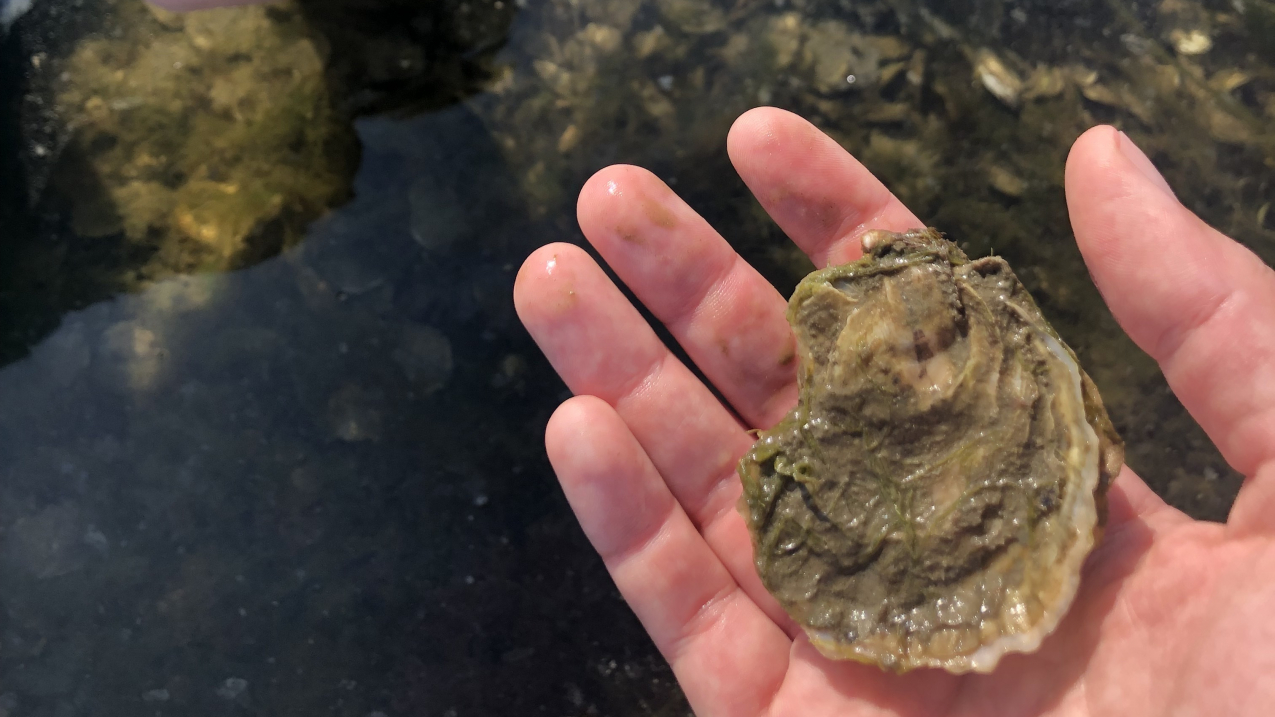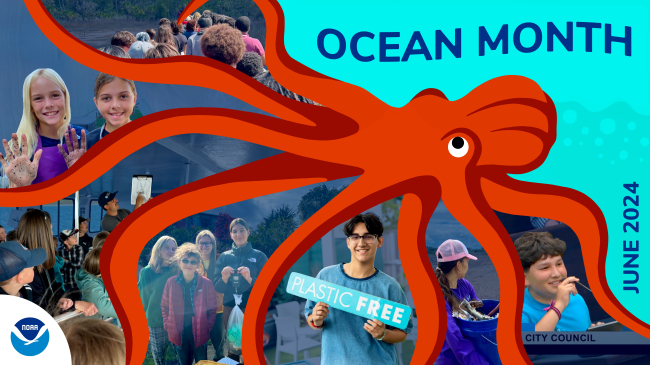NOAA and the North American Association for Environmental Education offsite link (NAAEE) are awarding $150,000 to 10 projects that aim to enhance aquaculture literacy. Selected projects offsite link will reach community members in six states, many of whom have never had access to this level of aquaculture outreach and education resources

In the foreground, the photographer holds an oyster in their hand while in the background a person can be seen bending down to install a GoPro camera on an oyster cage. (Image credit: Rachell LaBella/University of Massachusetts Boston)




